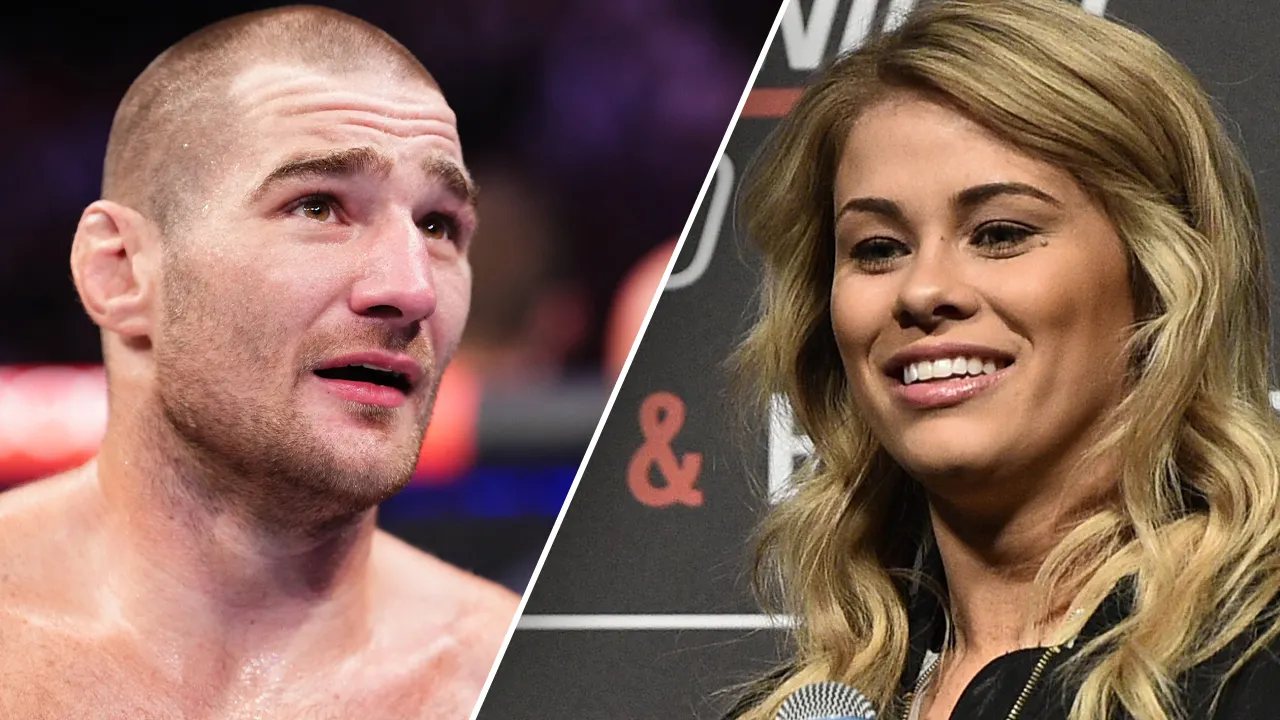Paige VanZant OnlyFans Leak: Details & Aftermath | Latest News
How does a public figure navigate the treacherous waters of the digital age when personal content intended for a select audience finds its way into the public domain? The recent controversy surrounding Paige VanZant, a celebrated figure in the world of Mixed Martial Arts (MMA) and a prominent social media personality, serves as a stark reminder of the vulnerabilities inherent in our increasingly interconnected world, and the significant impact that digital privacy breaches can have on individuals and the content creation industry.
The echoes of the digital storm continue to reverberate, as the unauthorized dissemination of private videos and photos from VanZant's OnlyFans account has ignited a firestorm of debate and concern across the internet. The news, rapidly spreading across the digital landscape, has prompted a significant response, with many fans and observers expressing a mix of worry and outrage over what they perceive as a violation of privacy. This unfortunate event serves as a pivotal moment, forcing us to confront challenging questions surrounding personal data, online security, and the ethical responsibilities of both content creators and the platforms they utilize.
| Full Name | Paige Vanzant |
| Date of Birth | March 26, 1994 |
| Place of Birth | Oregon, USA |
| Height | 5 ft 4 in (163 cm) |
| Weight | 125 lb (57 kg) |
| Marital Status | Married to Austin Vanderford |
| Occupation | MMA Fighter, Model, Social Media Personality, Professional Wrestler |
| Notable Achievements | Former UFC Fighter, Competitor on "Dancing with the Stars" |
| Link to Professional Profile | UFC Profile |
VanZant, a name familiar to those in the world of combat sports, has established herself as a recognizable figure, moving from the intense world of the Octagon to explore new avenues in professional wrestling and social media engagement. The incident, however, has cast a long shadow on her personal brand, exposing the underlying risks associated with online content creation and the potential ramifications of privacy breaches.
The incident involving VanZant is unfortunately not an isolated event. It is part of a larger pattern of privacy violations that plague the digital sphere. The vulnerabilities inherent in our online existence, amplified by data breaches, hacking attempts, and the pervasive nature of social media, create opportunities for malicious actors to exploit individuals and profit from their compromised privacy.
The leak of VanZant's OnlyFans content has brought renewed focus to the critical issues involved in content creation, as well as broader societal debates regarding digital ethics, the legal framework surrounding content ownership, and the responsibilities of tech companies to safeguard user data. These issues are not confined to a single individual; they affect everyone who engages with the internet, and demand a thorough examination of how we navigate the complexities of the digital age.
The repercussions of the incident extend beyond the immediate shockwaves. The incident has spurred discussions on the role of OnlyFans and similar platforms in modern digital entrepreneurship, and the often-difficult balance between content creation, creative freedom, and safeguarding personal privacy. The platform's rapid growth, and its appeal to a broad spectrum of content creators, means that conversations around its operational practices and its responsibility in protecting user privacy is ongoing.
The leak of VanZant's private content swiftly became a viral phenomenon. The quick spread of these materials across various online platforms highlighted the speed with which sensitive information can be disseminated and the challenges in maintaining control over digital content. The incident further serves as a reminder of the significant challenges creators face in safeguarding their work and maintaining their privacy in an environment where digital boundaries can be easily crossed and violated.
The unauthorized sharing of VanZant's content has stirred up questions about the legal ramifications. The act of sharing private content without consent, especially when it involves images and videos, is a serious violation that has potential legal repercussions. While the immediate reaction may be curiosity, the act of viewing or sharing this content could have further consequences, making it imperative that individuals understand the legal risks involved.
The recent events have served as a reminder of the importance of implementing robust security measures, but it is equally crucial for individuals to be aware of the potential risks and be prepared to take proactive steps to safeguard their content. This involves the use of strong passwords, secure communication methods, and a critical evaluation of the information that is shared online. Vigilance is key to minimizing the potential for these kinds of privacy breaches.
The challenges, however, are far from insurmountable. VanZant, along with many others in the industry, exemplifies resilience. The ability to adapt and continue pursuing one's goals, despite the intrusion, is crucial. It is also important to recognize the need for collective action. This includes advocating for stronger privacy protections, supporting ethical content creation practices, and pushing for more accountability from tech companies.
VanZant's story, unfortunately, joins an ever-growing list of instances where personal and private content is exploited. The consequences are not just limited to individuals; they also affect their professional lives and the broader perception of online content creation. Understanding the ethical, legal, and social implications of these incidents is paramount in addressing the broader patterns of privacy violations in the digital age.
The incident has also brought forth important questions about the roles and responsibilities of technology companies. These companies are often the gatekeepers of data and user information, and are expected to implement appropriate security measures and protocols to prevent breaches. A re-evaluation of these security measures is crucial, along with an honest assessment of the effectiveness of existing privacy policies and data protection practices.
The incident has created a space to explore how the monetization of content through platforms like OnlyFans and Fantime can intersect with issues of privacy and consent. As public figures increasingly use such platforms to connect with audiences and generate income, the ethical dimensions of this are scrutinized. This has fueled debates about the appropriate boundaries of content creation, and the challenges in balancing creative expression with the need for safeguarding one's personal information.
VanZant has not fought since a July 2021 loss to Rachael Ostovich in Bare Knuckle FC (BKFC). The shift from MMA to professional wrestling and other endeavors reflects a willingness to diversify and adapt within the entertainment industry, but underscores the enduring impact of her combat sports career. The transition also highlights how athletes and entertainers are navigating the complexities of a changing media landscape.
The incident involving VanZant's OnlyFans content is a reminder of the importance of taking proactive steps to protect online content, particularly for content creators. This is a call for continuous vigilance, robust security practices, and a recognition of the evolving challenges inherent in the digital landscape. This involves the need to address vulnerabilities, to understand the potential for data breaches, and to implement measures to mitigate the risks of unauthorized content dissemination.
Beyond the specific incident, the events provide an opportunity for broader reflection on societal attitudes toward privacy and consent. The way we respond to these incidents, as individuals, as communities, and as a society, reveals much about our values. By fostering a culture of respect, empathy, and a strong commitment to individual rights, we can begin to change these attitudes and create a more secure and respectful digital world.
It is crucial to recognize that this type of privacy breach is not an isolated incident. It is part of a disturbing trend of privacy violations in the digital age. By addressing the underlying issues, from data security to ethical content creation practices, we can start to create a more secure digital environment.
In the wake of the recent events, we have witnessed a flurry of debates spanning ethical concerns, the role of content creation platforms, and the changing dynamics of digital entrepreneurship. The incident acts as a catalyst for conversations that are essential in shaping the future of the digital landscape. It is a call to action, requiring individuals, tech companies, and society to work together to develop strategies to protect individual privacy in the digital realm.


